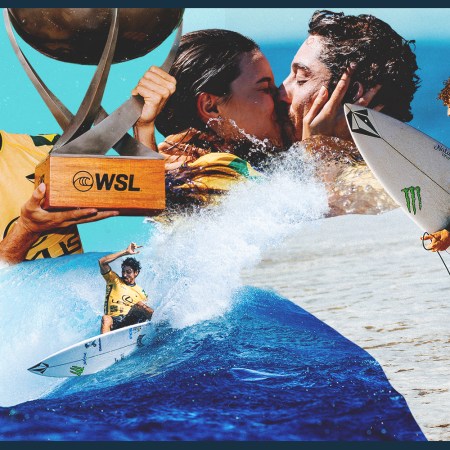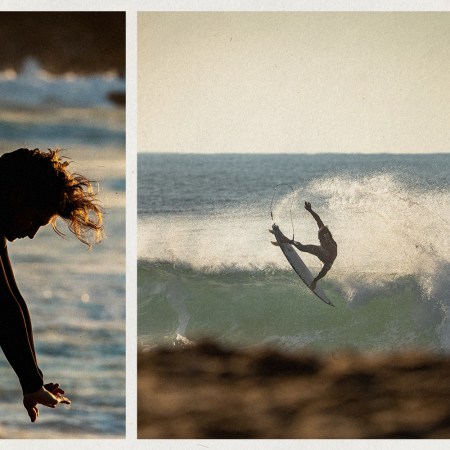It’s highly possible the Tokyo Olympics don’t happen. The Games are slated to start only about two months from now (they were tentatively rescheduled for July 23rd through August 8th), and as recently as last week, the Tokyo Medical Practitioners Association called for cancellation. A team of 6,000 doctors cited “almost no spare capacity” in hospital beds as COVID-19 infections have crept up again and the government attempts to rectify a bungled vaccination rollout — less than 3% of the nation’s 126 million people have been vaccinated.
Not to mention, Tokyo is poised to be the hottest host city since 1984; doctors are worried that heatstroke will be a major theme at the Games, and they won’t have enough hospital beds to care for competitors or spectators.
If, somehow, Tokyo 2021 gets off without a hitch, it will also be a historic Olympics for a reason that has nothing to do with a once-in-a-century pandemic. This summer will be surfing’s debut at the Games, after years of hard-fought lobbying by the International Surfing Association to the International Olympic Committee. Four other sports were added as well — sport climbing, karate, baseball/softball and skateboarding — but surfing has generated the most attention and controversy, as it will actually feature its biggest stars, while also throwing a wrench into one long-standing tradition.
On the international circuit, Hawaii competes as a sovereign surfing nation. In the World Surf League, as The New York Times points out in a recent article, “There is an understanding: You represent Hawaii, or you represent the United States. You do not do both.” This has created an uncomfortable situation for two of the four Americans who qualified for the Games — John John Florence and Carissa Moore were both born and raised in Hawaii, and have spent their entire lives surfing under the Hawaiian state flag.
““There’s a little bit of tension with that, going into the Olympics under a U.S.A. flag,” Florence acknowledged. “I don’t want to divide at all. I’m not anti-anything. I’m pro-Hawaii.”
The IOC’s ultimate aim is to simplify muddled geopolitical designations. As an incorporated state since 1959, Hawaii is a no-brainer for inclusion under the Stars and Stripes. A territory like Puerto Rico, meanwhile, competes on its own. But that decision process ignores the status quo in competitive surfing today, and the complex history of American-Hawaiian relations, particularly in the realm of surfing. White colonizers successfully overthrew Hawaii in the late 19th century, but failed to stamp out the unusual activity that dominated the Hawaiian lifestyle.
As surf historian John Clark pointed out to the Times: “There is no evidence of anyone stand-up surfing before the Hawaiians. They held competitions, created surfing temples and imagined surfing deities.” Over time, the Americans fully adopted stand-up surfing, and profited off it, too — it’s now a $10 billion industry.
Should the IOC have allowed Florence and Moore to surf for Hawaii? Many Hawaiians certainly think so. Some have called the alternative a “travesty.” It might’ve provided an opportunity for Hawaiians to turn their collective pain into pride on a global scale. Still, the issue is more complicated than that. Florence isn’t of Native Hawaiian blood, and Moore only has “a little bit.” While they are respectful, educated ambassadors for the history of their sport, some would prefer a Native Hawaiian to be draped in the state’s colors on Tsurigasaki Beach.
For now, we don’t even know if the Games will happen this year. But if they do, keep your eyes trained for some sort of shout-out from the Americans, as — however imperfectly — they look to honor the birthplace of their beloved sport.
The Charge will help you move better, think clearer and stay in the game longer. Subscribe to our wellness newsletter today.



















